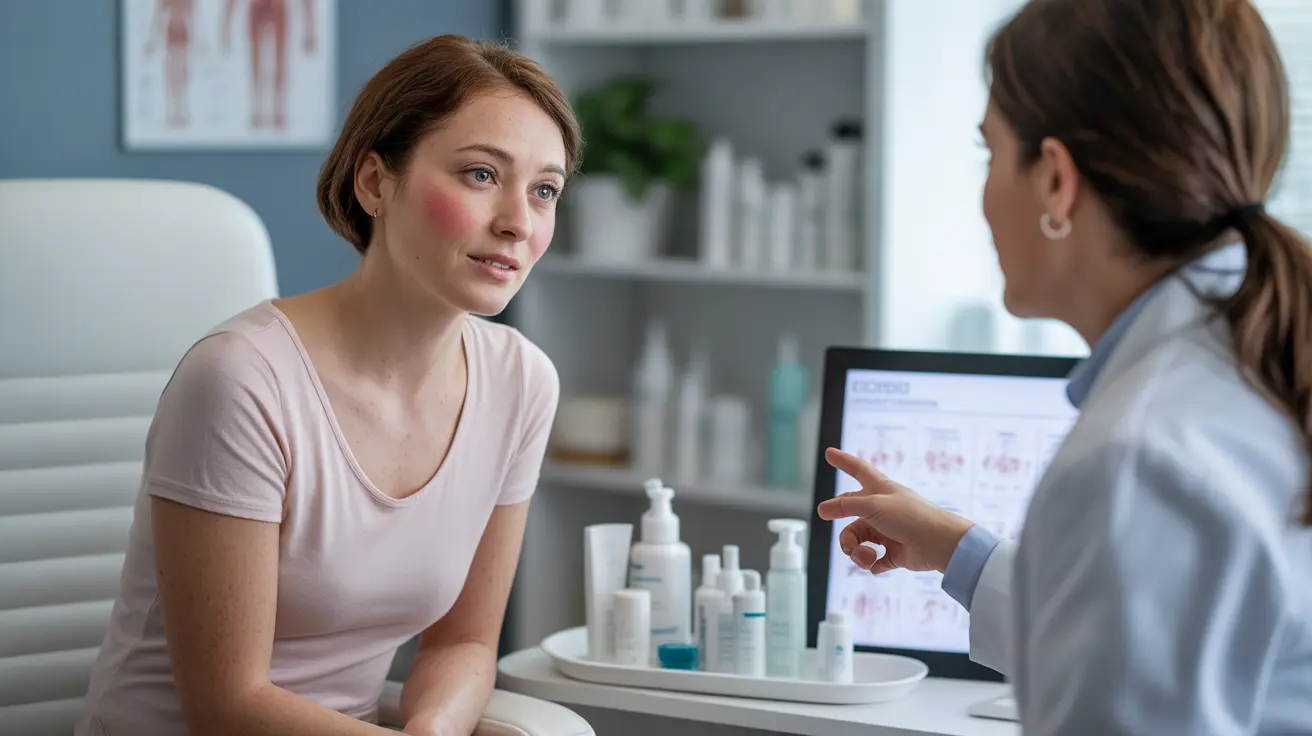Living with rosacea can be challenging, and many people wonder if this chronic skin condition can be permanently cured. While there currently isn't a definitive cure for rosacea, modern medicine offers numerous effective treatments and management strategies that can help control symptoms and reduce flare-ups significantly.
Understanding your options for managing rosacea is crucial for achieving the best possible outcomes. Let's explore the current treatment landscape, from medical interventions to lifestyle modifications, and examine what research tells us about managing this persistent condition.
Current Treatment Approaches for Rosacea
While a complete cure remains elusive, several proven treatments can effectively manage rosacea symptoms and prevent flare-ups. These approaches typically involve a combination of medical treatments and lifestyle modifications.
Topical Medications
Prescription topical treatments form the foundation of rosacea management. FDA-approved options include:
- Metronidazole for reducing inflammation and redness
- Ivermectin cream for treating papules and pustules
- Azelaic acid for addressing multiple symptoms
- Oxymetazoline and brimonidine for temporary reduction of facial redness
Oral Medications
For moderate to severe cases, doctors may prescribe oral medications such as:
- Low-dose antibiotics to reduce inflammation
- Isotretinoin for severe cases resistant to other treatments
- Anti-inflammatory medications for specific symptoms
Advanced Treatment Options
Laser and Light Therapy
These innovative treatments can effectively target visible blood vessels and reduce persistent redness. Different types include:
- Pulsed dye laser (PDL)
- Intense pulsed light (IPL)
- KTP laser therapy
- CO2 laser resurfacing
Emerging Treatments
Research continues to explore new treatment possibilities, including:
- Novel topical formulations
- Targeted biological therapies
- Microbiome-based treatments
- Anti-inflammatory compounds
Lifestyle Management Strategies
Successfully managing rosacea requires identifying and avoiding personal triggers. Common triggers include:
- Sun exposure and extreme temperatures
- Spicy foods and hot beverages
- Alcohol consumption
- Stress and anxiety
- Certain skincare products
Creating an Effective Skincare Routine
A gentle skincare regimen is essential for rosacea management:
- Use mild, fragrance-free cleansers
- Apply broad-spectrum sunscreen daily
- Choose products specifically formulated for sensitive skin
- Avoid harsh exfoliants and alcohol-based products
Frequently Asked Questions
Can rosacea be completely cured or is it only manageable with treatment? While rosacea cannot be completely cured at present, it can be effectively managed with appropriate treatment and lifestyle modifications. Most people achieve significant improvement in their symptoms through consistent treatment.
What are the most effective medications currently approved to treat rosacea symptoms? The most effective medications include topical treatments like metronidazole, ivermectin, and azelaic acid, as well as oral antibiotics for more severe cases. These medications are FDA-approved and have shown significant success in clinical trials.
How do laser and light therapies help reduce rosacea redness and visible blood vessels? Laser and light therapies work by targeting and destroying visible blood vessels beneath the skin's surface. These treatments can significantly reduce redness and improve the appearance of dilated blood vessels with minimal downtime.
Are there any new or experimental treatments for rosacea that show promise? Researchers are investigating several promising treatments, including microbiome-targeted therapies, new anti-inflammatory compounds, and novel delivery systems for existing medications. Clinical trials continue to explore these potential breakthrough treatments.
What lifestyle changes or triggers should I avoid to help control rosacea flare-ups? Key lifestyle modifications include avoiding known triggers such as sun exposure, extreme temperatures, spicy foods, alcohol, and stress. Maintaining a gentle skincare routine and using sun protection are also essential for preventing flare-ups.
While rosacea may not have a cure yet, combining medical treatments with appropriate lifestyle changes can help achieve and maintain clearer skin. Working closely with a healthcare provider to develop a personalized treatment plan offers the best chance for successful management of this chronic condition.




